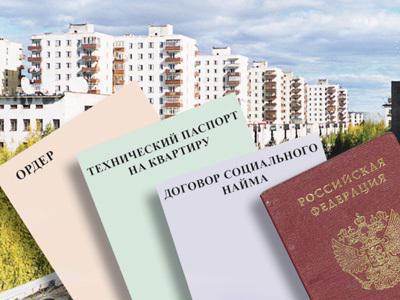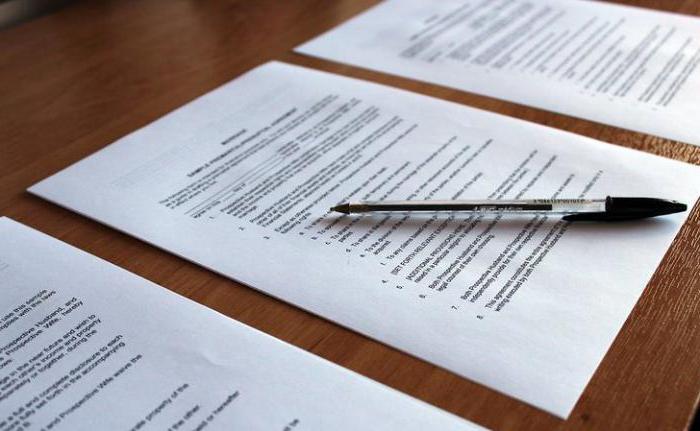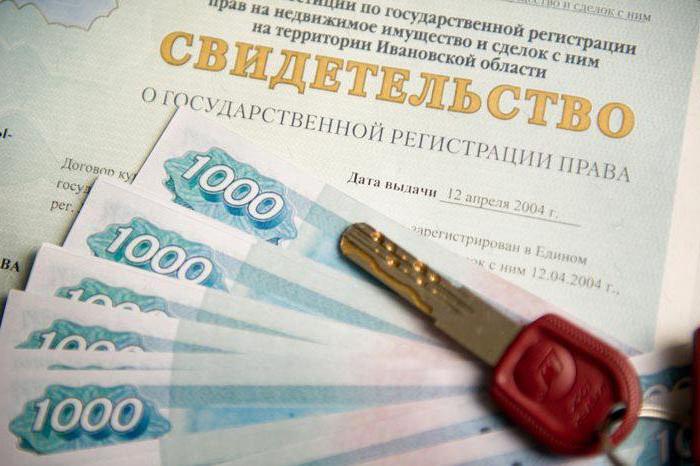Today we have to find out whether it is possible to sell a non-privatized apartment. This issue is of interest to many citizens, especially those who do not own any housing. What can such people count on? And what if the person decided to carry out the privatization process? Answers to all these questions will be given below. In fact, understanding the topic being studied is much easier than it seems.
Right of sale
Is it possible to sell a non-privatized apartment? This is the question that arises among modern residents of the Russian Federation. In particular, those who live on the territory only as a tenant.

The Housing Code of the Russian Federation allows for any transactions with its property. It can be given, sold, allocated shares in it, exchanged, and so on. But non-privatized housing is not the property of those living on its territory. What is the end result?
Is it possible to sell a non-privatized apartment in Russia? This is prohibited by law. Only after privatization will a citizen be able to sell the housing assigned to him.
Ways to circumvent legislation
But do not despair. In Russia, realtors have long been working with non-privatized real estate. There is not much of it in the market, but it does exist. This means that citizens can circumvent the prohibitions of the law.
How to sell a non-privatized apartment? You can use the following methods:
- privatize property with the buyer;
- exchange an apartment.
There are no more options for the development of events. Unless to completely privatize the apartment, and then put it up for sale. What should each citizen know about these processes? Next will be described in more detail about these operations.
Privatization with the buyer
Let's start with the more difficult task of privatizing the property being sold with the buyer. This procedure is more difficult than an exchange. In particular, due to the fact that it is far from always possible to privatize property.
In general, the algorithm of actions is reduced to the following manipulations:
- Find out if housing can be privatized. In some cases, this is not possible. If there are no restrictions on privatization issues, decisive action can be taken.
- Contact the state administration with a statement on privatization and some documents. About them will be discussed later.
- Wait for a response from the city administration. This operation takes about 30 days. After that, a privatization agreement is concluded with a citizen.
- The buyer agrees to make a deposit for privatization. Cash is being deposited.
- How to sell a non-privatized apartment? After the buyer has made a deposit for the property, persons involved in privatization acquire the right to sell housing. Between the buyer and the seller a sales contract is concluded in the usual manner.
The most difficult moment is the preparation of all necessary documents for privatization. But with the right actions, it will be possible to realize the idea in the shortest possible time.
Exchange
The exchange of a non-privatized apartment is another development scenario. But it is suitable only for those who work with a bona fide real estate agency. Without it, the sale of the property under study will not be possible.
So how to exchange non-privatized apartments? To do this, you have to:
- Post ads on the exchange of property. This can be done both independently and through a real estate agency.
- The buyer must buy the so-called "buffer" from a real estate agency. This is the name of the property owned by the company and used for property exchange procedures.
- Collect documents and apply for an exchange. The relevant authority will examine the paper and give permission for the operation.
- Execute an exchange procedure at a real estate agency - the buyer receives the apartment, and the seller receives the "buffer".
- Make a sale-purchase "buffer" to a real estate agency.
This system raises many suspicions. Therefore, the exchange of non-privatized housing in practice is not very common. In order to avoid any problems, it is recommended that citizens first privatize the property, and then put it up for sale. So it will be possible to find buyers and conduct a deal without any particular risks. This can be done both independently and through real estate agencies.
Rights with and without privatization
What is the difference between privatized housing and non-privatized housing? And why, without this operation, buying and selling real estate is more difficult than it seems?
The thing is that privatization is the process of converting someone else's property into their own. As a rule, registration of state apartments as private property. Moreover, in privatized housing, owners can:
- to give;
- sell property;
- bequeath real estate;
- register new residents;
- write out residents;
- alienate shares;
- exchange property at will;
- live as an owner.
Also, privatized housing is inherited. Along with the rights to the owners, certain obligations fall. In particular:
- housing maintenance;
- property repair;
- for paying property taxes.
Rights in a non-privatized apartment are limited. So, citizens can register their children in such housing and live there independently. With a residence permit, the population can participate in privatization. Payment of utility bills falls on the shoulders of residents, but nothing more. Citizens in non-privatized property will have no other rights and obligations.
About registration
A few words about registration. As already mentioned earlier, owners of privatized apartments can register on the territory of any citizens. The exception is cases with multiple hosts. Then, for the registration of third parties, the written consent of all property owners is required.
Registration in a non-privatized apartment without the consent of the owner almost does not take place. Close relatives, in particular children, can be made residents of such real estate. To register with third parties, you must obtain permission from the city administration.
Privatization participants
Is it possible to sell a non-privatized apartment? Yes, but with certain problems. It is best to privatize first and then complete property sales and purchase transactions.
Who is eligible for privatization? Every citizen registered in housing can participate in this process for free. If a person once privatized a property, he will have to pay for the second privatization.
If a citizen does not want to participate in the process, he can refuse it. To do this, you will have to write a refusal and assure him of a notary public. Then the person will be a simple tenant, not the owner.
Refusal of privatization is prohibited for young children. They are necessarily involved in the process, but the right to free privatization in the future remains with them. You can refuse to register housing in the property from the age of 14 through the guardianship authorities. But this is an extremely rare occurrence.
If at least 1 tenant does not agree to privatization and does not give a written refusal to participate in the process, the procedure is impossible. In this case, you have to think about how to sell a non-privatized apartment.Possible methods have already been mentioned earlier.
Privatization process
Is it possible to sell a non-privatized apartment? Yes, but in exceptional cases. It is best to privatize property first, and only then to conduct a transaction. Bringing an idea to life is much easier than it sounds.
How to privatize an apartment? This will require:
- Learn about privatization rights. Usually it takes place.
- Collect consent to participate in the process or waivers from all residents.
- Apply for privatization to the city administration. A specific list of documents and refusals to participate in privatization must be attached to the request.
- Wait for a response from the relevant government agency. After receiving the decision, contact the Rosreestr for registration of property rights.
If all residents agree to privatize, the process will not cause any particular difficulties. Otherwise, as already mentioned, situations may arise in which it will not be possible to register an apartment in private ownership.

About documents (privatization)
And what documents may be required to implement the task? How to privatize an apartment?
In order to be able to register housing in private ownership, you will need:
- passports of all residents;
- application for privatization;
- refusals to participate in privatization from dissenting residents;
- cadastral and technical passport of real estate;
- extracts from the house book and from the personal account;
- documents confirming the absence of debts;
- birth certificates (for minors);
- permission of the guardianship authorities to refuse the child’s participation in privatization (if necessary);
- social contract of employment;
- certificates of participation / non-participation in privatization earlier.
In fact, everything is not so difficult. All listed papers are attached with copies with the exception of the application.
After decision
As soon as a decision comes from the city administration, the sale of a non-privatized apartment will not take place. Citizens will receive housing in the property, if everything was done correctly.
All that remains now is to register ownership of the property and put it up for sale. It is necessary to apply for the appropriate certificate to the Federal Registration Service.
A citizen will be issued a certificate of ownership after providing:
- privatization agreements;
- passports of owners;
- cadastral passport.
Within 5 days from the moment of applying for the certificate, the homeowners will be issued the relevant documents. After submitting an application for a certificate of ownership of the apartment, everyone will be given extracts in which the date of receipt of the necessary paper will be written.
Apartment for sale
How to sell a non-privatized apartment with a minor? In practice, this is quite difficult, almost impossible. The sale of privatized property actually takes place, but also with certain reservations. People are reluctant to contact apartments in which children are registered.
Purchase and sale of property implies the signing of an appropriate contract. The following papers are attached to it:
- passports of the parties;
- exchange permit (for non-privatized housing);
- cadastral passport of property;
- permission from the spouse for the transaction (if the apartment is a joint property);
- permission for the operation from all homeowners;
- extract from personal account and house book;
- permission from guardianship authorities (if the apartment has children-owners);
- documents indicating the absence of debt on accounts;
- certificate of ownership.
It'll be enough. After signing the contract of sale, the buyer transfers the money to the seller, and the seller, in turn, issues a receipt on receipt of money.
Summary
How to sell a non-privatized apartment with debts? As in the case of registered minors, it is almost impossible to bring the idea to life.The only right decision will be the privatization of property with its subsequent sale.
Now it’s clear how public housing can be converted into private housing. After privatization, the citizen will be able to dispose of the apartment at his discretion.
Is it possible to sell a non-privatized apartment? Yes, but people are reluctant to associate with such real estate. Usually it is either exchanged or privatized first, and then put up for sale.